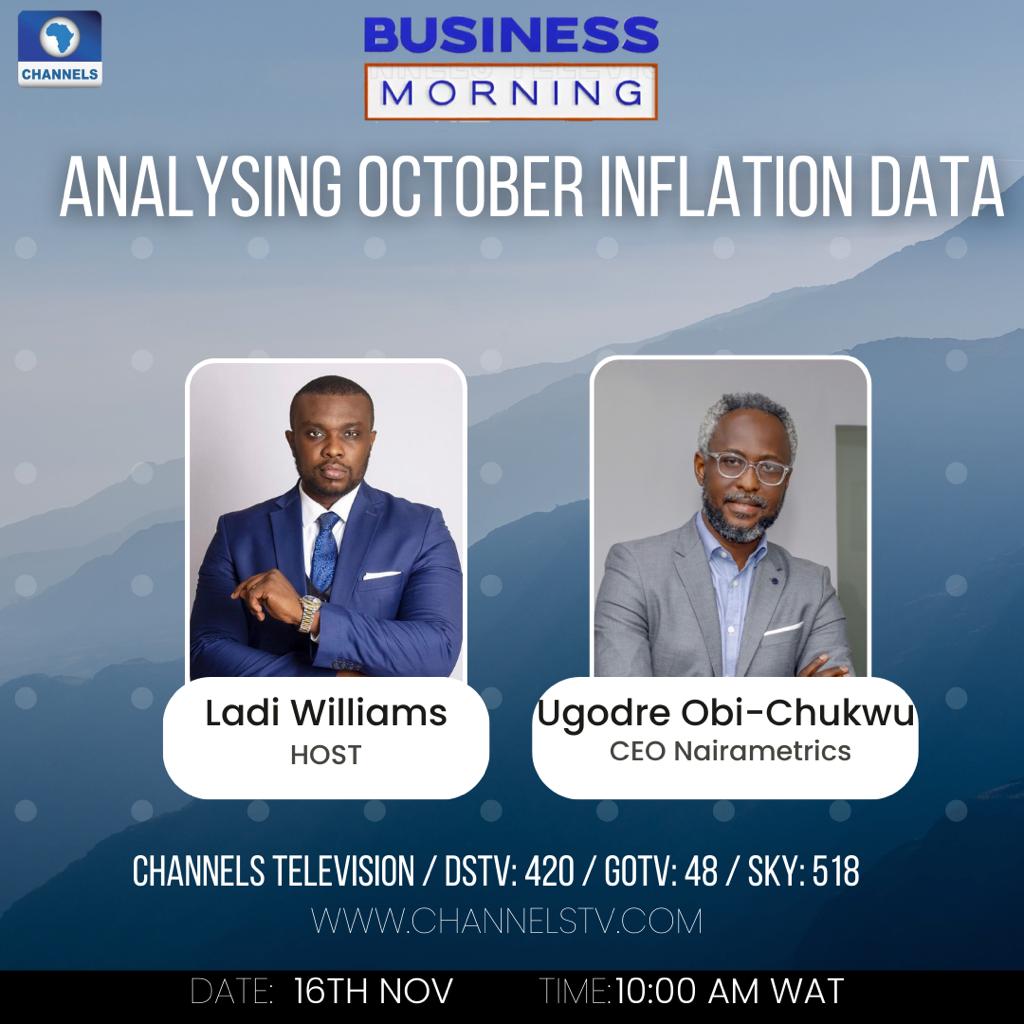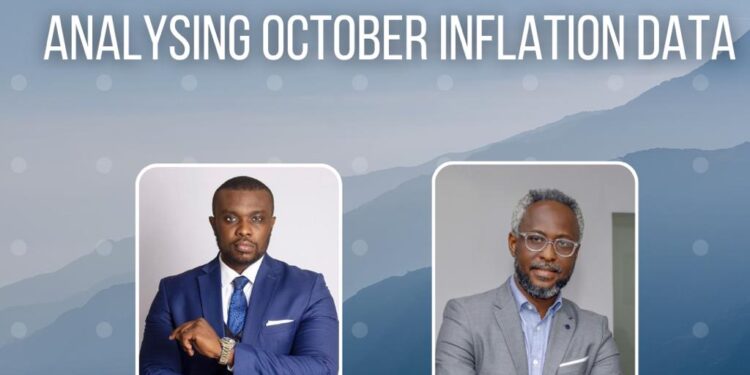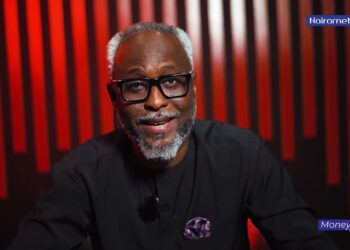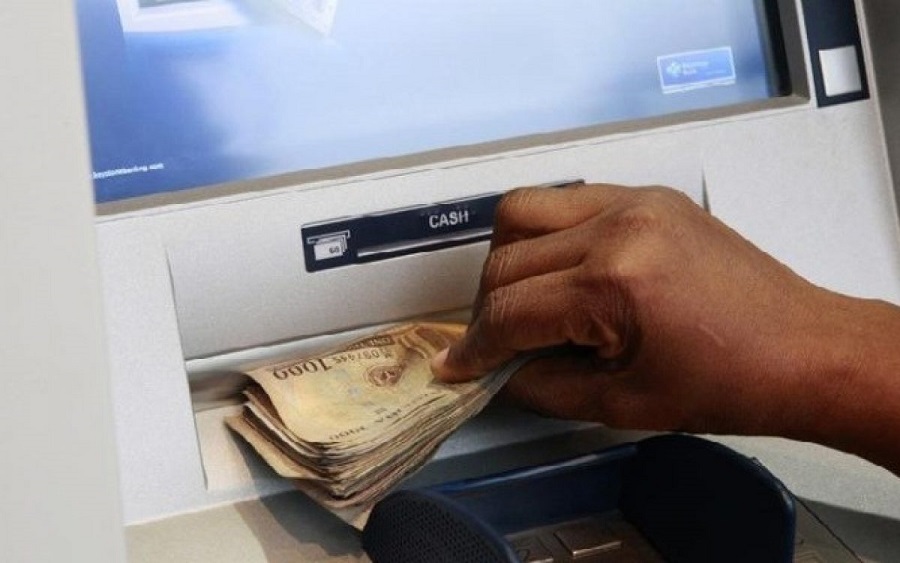Nigeria’s inflation rate may remain ‘sticky’ in the upcoming months due to the ongoing series of reforms taking place in the country.
This was the position of Ugodre Obi-Chukwu, CEO of Nairametrics while speaking on Channels TV’s Business Morning yesterday.
He noted that just like Ghana, Nigeria would likely hit its base effects, however, he posited that till the end of the year, we’re likely to see higher inflation rates.

What he said
- “Nigeria is still going through different cycles of reforms and for that reason, you would continue to see inflation sticky over the next few months.
- “At 27.33%, we see a reflection of some of the things that have happened in the last few months, subsidy removal, exchange rate depreciation, and these are pass-through items that often impact inflation rate. That is why it’s going to remain sticky.
- “We are experiencing some reduction month-on-month, from 2.89% in July to 3.1% in August, it dropped to 2.1% in September, and now 1.73% in October. However, on an annual basis, it’s still rising.”
He noted that just like Ghana, Nigeria would hit base effect at some point.
The base effect refers to the impact of past price changes on current inflation calculations. It occurs when the current inflation rate appears higher or lower than it is due to the distortion caused by a low or high reference point from the previous period.
For instance, if there was an unusually low inflation rate in the previous year, even a moderate increase in prices in the current year might appear as a significant percentage change, making the current inflation rate seem higher than it would be without this distortion.
Conversely, if there was a high inflation rate in the past, a similar increase in prices might seem like a lower percentage change, masking the true inflation rate.
- Ugodre noted, “Ghana has gone through cycles of galloping inflation, hit their peak, and now it seems to be tapering down, and that could be due to base effect. It’s not like any major thing has happened in Ghana.
- “Nigeria would also experience its base effect at some point but for now, I don’t think we’ve plateaued yet. And we are very likely to see much higher inflation as we approach the end of the year.”
He then noted that the exchange rate depreciation witnessed between August and October has not been reflected in the prices of goods and services in the country.
- “I don’t think there’s light at the end of the tunnel yet. There are still a number of things that haven’t come up yet, and a lot of people are yet to reflect their prices. The exchange rate depreciation that we’ve seen between August and October hasn’t reflected on new inventories that’ll be coming in as we approach the Christmas season.
- “I think that we’ll see a lot more price increases, and that’s why I think inflation would remain sticky up until the first quarter of next year.
- Further noting, “Let’s remember that they are yet to increase electricity prices, that is still being held down. As long as that is held down, you’re not seeing the true cost of doing business in Nigeria from an inflation perspective.
- “There’s still a lot of headwinds down the line, nobody knows what is going to happen to crude oil prices and there are predictions that we could go pass $100. Some people suggest that it could go lower as the global economy starts to shake.
- “But with the Israel-Hamas war, there’s fears that crude oil prices could go up. If they go up and we continue to face exchange rate pressures, it’s difficult to think that there’s light at the end of the tunnel. Fuel subsidy has been removed and that pass-through cost is going to come down to Nigerians. And when it comes down to Nigerians, it immediately reflects on food prices.”
Ugo supported the assertion that the Federal Government’s Ways and Means borrowing from the CBN is a contributor to the spike in inflation.
He noted that money supply in the country skyrocketed to about N66 trillion from less than N20 trillion after the government started the W&M borrowings.
FG likely to go back to Ways and Means borrowing
He also noted that there are signs that this administration would follow the path of the previous administration by continuing Ways and Means borrowing from the Central Bank.
- “My own concern is looking at the MTEF for the next three years and the 2024 budget, you see elements of the same kind of economic policies that the Buhari administration had in the current administration.
- “They have gone for a wide fiscal deficit budget and revenue targets that are a bit unrealistic. When you have a combination of these two factors, it’s pretty obvious that the government might be looking at borrowing.
- “And we know that it’s quite difficult tapping into the foreign debt market. We can keep tapping into the local debt market which they’ve been doing, but for the size of the revenue gap that they’ll face in 2024, they are likely to go back to Ways and Means.”
- With the money supply projected to increase to N80 trillion within the next three years, Ugodre questioned the rationale behind the increasing fiscal deficit in the Federal Government budget.
- “You look at these things and ask, where exactly is the silver lining? How are they going to contain inflation when spending is going to keep increasing at least at the Federal level.
- “Right now, you’re trying to address inflation and weakening exchange rate, you don’t address that by continuing with wide fiscal deficit budgets that the government is currently embarking on.”
CBN is limited in solving inflation
Ugodre noted that the CBN’s options in fixing the inflation problems were quite limited especially due to the nature of inflation in Nigeria.
- “In terms of the CBN and what they might do, there’s really not much. Inflation has always been driven by structural issues in Nigeria, supply-side issues.
- “For the US, the UK, and Europe, many of these countries, inflation is usually based on demand-related issues so monetary policy works. In Nigeria, monetary policy works to an extent, we’re likely to see MPR go up again, they need to increase interest rates so that it could reduce the volume of Naira chasing the dollar.
- “However, beyond that, the government needs to sort out several things. We still have an energy crisis, and Nigerians are battling rising fuel prices.
- “The government needs to fast-track its plan of moving into CNG as a means of transportation. If fuel prices continue to go up, people are going to find a way to push that cost to Nigerians and that adds to inflation.
- “Structural issues around ease of doing business, transportation bottlenecks. Now that the rains are over, the government can continue with fixing roads, and continue with the infrastructure plans they had with rails.
- “People need to be able to move food from one part of the country to the other without losing huge parts of their products because of transportation issues.”
What you should know
On November 15, the NBS put Nigeria’s inflation figures for October 2023 at 27.33%, maintaining a consistent upward trend ongoing this year.
The country is also enroute to the 30% inflation rate projected by KPMG for December 2023.





















